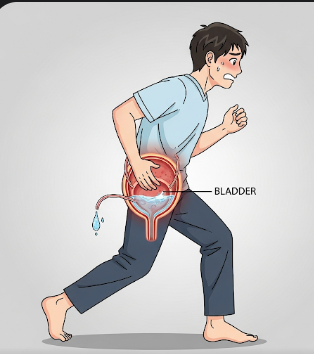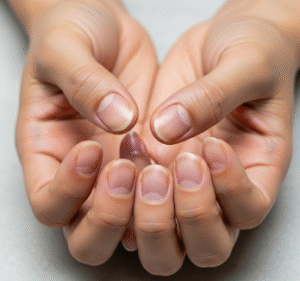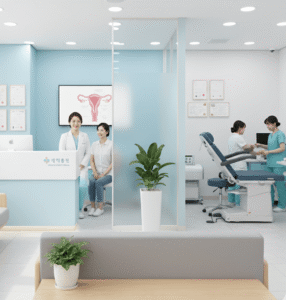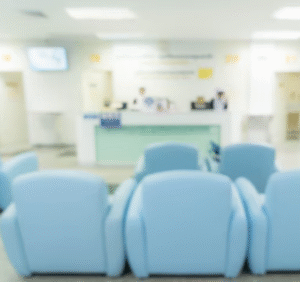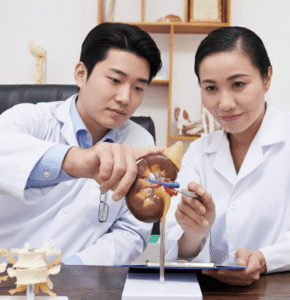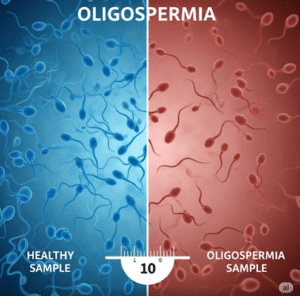Overview
Frequent urination, medically known as polyuria or urinary frequency, refers to the need to urinate more often than usual. While occasional frequent urination can be benign, persistent or sudden onset may indicate urinary tract infections, diabetes, kidney issues, or prostate problems. In Korea, urology, nephrology, and endocrinology clinics provide specialized evaluation for frequent urination, offering urine analysis, blood tests, imaging studies, and advanced diagnostics. Proper diagnosis allows targeted treatment to relieve symptoms and address underlying causes.
Highlights:
➤ Increased urination frequency beyond normal limits
➤ May indicate urinary tract infection, diabetes, or prostate disease
➤ Early medical evaluation helps prevent complications and identify serious conditions
Key Facts
➤ Prevalence: Common, particularly in older adults and individuals with chronic conditions
➤ Age affected: Can occur at any age; more concerning in adults with comorbidities
➤ Gender: Affects both males and females; men may experience prostate-related frequency
➤ Impact: Can disrupt sleep, daily routines, and quality of life
➤ Prognosis: Depends on underlying cause; often improves with appropriate treatment
What is Frequent Urination?
Frequent urination is the recurrent need to empty the bladder, often defined as more than 8 times in 24 hours or waking multiple times at night (nocturia). Common characteristics include:
- Small or large volumes per urination
- Urgency: Sudden, strong need to urinate
- Associated discomfort: Burning or pain in some cases
- Possible leakage: In cases of bladder irritation or weakened sphincter
It can be classified as:
- Primary polyuria: Excessive urine production, e.g., diabetes mellitus or diabetes insipidus
- Secondary frequency: Due to reduced bladder capacity, infections, or obstruction
Highlights:
➤ Frequent urination can signal systemic or local urinary issues
➤ Characterization of symptoms guides diagnosis and management
➤ Nocturia or sudden onset warrants prompt evaluation
What Symptoms Are Related to Frequent Urination?
➤ Urgency: Sudden strong desire to urinate
➤ Nocturia: Waking multiple times at night to urinate
➤ Dysuria: Pain or burning during urination
➤ Polyuria: Large volumes of urine with frequent voiding
➤ Incontinence: Leakage in severe bladder dysfunction
➤ Associated systemic symptoms: Fatigue, thirst, or dehydration in diabetes
➤ Lower abdominal discomfort or back pain: May indicate infection or obstruction
Highlights:
➣ Symptoms help differentiate between benign causes and serious underlying conditions
➣ Combination with systemic signs may indicate metabolic or renal disorders
What Causes / Possible Causes
➤ Urinary tract infection (UTI): Bladder irritation leads to urgency and frequency
➤ Diabetes mellitus: High blood sugar causes polyuria and nocturia
➤ Diabetes insipidus: Rare hormonal disorder causing excessive urine production
➤ Prostate enlargement (BPH): In men, enlarged prostate reduces bladder capacity
➤ Overactive bladder: Nervous system dysfunction leading to frequent urgency
➤ Medications: Diuretics or caffeine increase urine production
➤ Pregnancy: Enlarged uterus compresses the bladder
➤ Kidney disease: Impaired kidney function can alter urine output
➤ Interstitial cystitis: Chronic bladder inflammation
Highlights:
➣ Causes range from infections and hormonal disorders to structural bladder issues
➣ Identification of the underlying cause is essential for proper treatment
When Should I See My Doctor?
➤ Persistent frequent urination lasting more than a few days
➤ Pain, burning, or blood in urine
➤ Sudden, unexplained onset with excessive thirst
➤ Nocturia disrupting sleep consistently
➤ History of diabetes, kidney disease, or prostate issues
Highlights:
➣ Early consultation at a Korean urology or endocrinology clinic ensures accurate diagnosis
➣ Timely evaluation prevents complications like infection, dehydration, or renal damage
Care and Treatment
➤ Initial assessment: Urinalysis, blood glucose, kidney function tests, and bladder evaluation
➤ Hydration management: Maintain adequate fluid intake but avoid excessive fluids before bedtime
➤ Medications:
- Antibiotics for UTI
- Alpha-blockers or 5-alpha-reductase inhibitors for enlarged prostate
- Anticholinergic or beta-3 agonist drugs for overactive bladder
➤ Lifestyle modifications: Reduce caffeine/alcohol, schedule timed voiding, pelvic floor exercises
➤ Surgical intervention: For bladder obstruction, kidney stones, or severe prostate enlargement
➤ Monitoring: Track urinary frequency, volume, and associated symptoms
Highlights:
➣ Care combines symptom relief, lifestyle changes, and treatment of the underlying cause
➣ Proper monitoring prevents recurrence and complications
Treatment Options in Korea
Medical Treatments:
➤ Urology clinics: Comprehensive evaluation of bladder, prostate, and urinary tract
➤ Endocrinology clinics: Management of diabetes-related polyuria
➤ Nephrology clinics: Assessment of kidney function and urine output
Advanced Procedures:
➤ Cystoscopy: Evaluate bladder and urethra for structural causes
➤ Imaging studies: Ultrasound or CT scan for kidney and urinary tract evaluation
➤ Surgical interventions: Transurethral resection of the prostate (TURP) or correction of bladder obstruction
➤ Hospitalization: Rare, only for severe infections or complications
Rehabilitation & Follow-Up Care:
➤ Education on bladder training, fluid management, and early recognition of infections
➤ Regular monitoring for urinary symptoms, kidney function, and diabetes control
➤ Multidisciplinary support involving urologists, endocrinologists, and nephrologists
Highlights:
➣ Korean clinics provide comprehensive, multidisciplinary care for frequent urination
➣ Early intervention improves symptom control, quality of life, and long-term urinary health

